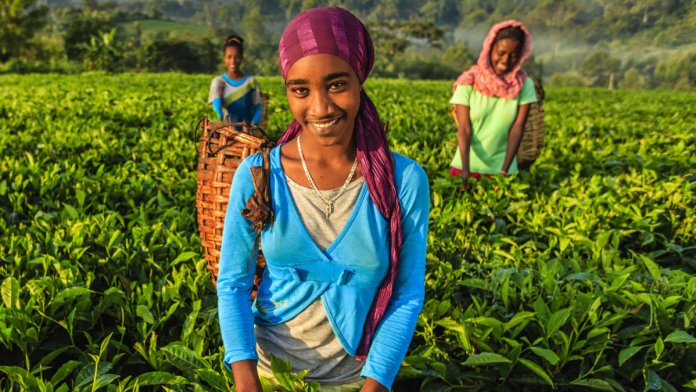News in Brief:
– Investing in women and girls within agrifood systems can inject $1 trillion into the global domestic product and lift 45 million people out of food insecurity.
– Despite women’s crucial role in agriculture, only four percent of bilateral aid is allocated to programs promoting gender equality, highlighting the urgent need for increased investment and political commitment.
The Food and Agriculture Organization (FAO) argues that closing gender gaps in farm productivity and wages could inject a staggering $1 trillion into the global domestic product (GDP), lifting 45 million more people out of food insecurity.
In a report, the institution underscores the urgency of prioritising gender equality, asserting that such investments are key to sustainable development.
Vice-President of the International Fund for Agricultural Development (IFAD), Gerardine Mukeshimana, also emphasised that investing in women goes beyond poverty alleviation, fostering stronger institutions and more resilient communities.
Agricultural inclusion for rural development
Recognising the pivotal role women play in agrifood systems, Maria Helena Semedo of FAO stresses the need to address gender gaps in financing. Bridging this divide not only empowers women but also extends significant benefits to their households and communities.
The World Food Programme (WFP) further echoes this sentiment, stating that investing in women is central to overcoming hunger and malnutrition.

However, a critical challenge persists: only four per cent of total bilateral aid is dedicated to programs promoting gender equality. The funding gap to achieve gender equality in key areas is a staggering $360 billion annually in 48 developing countries, according to FAO’s 2023 data.
Addressing gender gap in agrifood systems
In Sub-Saharan Africa and southern Asia, a substantial percentage of women’s employment lies in agrifood systems, highlighting their indispensable contribution to global food security. Yet, discriminatory social norms leave women vulnerable to hunger and poverty, with 388 million women and girls living in extreme poverty in 2022.
The Rome-based UN agriculture and food agency advocates for political commitment and increased investments to bridge the gender gap. Their proposed solutions involve capacity-building through education, leadership development, and challenging discriminatory norms. A major global initiative to advance gender equality and women’s empowerment will be launched at the upcoming Commission on the Status of Women.
As we celebrate International Women’s Day, let’s recognise the untapped potential within agrifood systems. Investing in women not only propels economic growth but also ensures a more resilient and equitable future for all.
Happy International Women’s Day!



